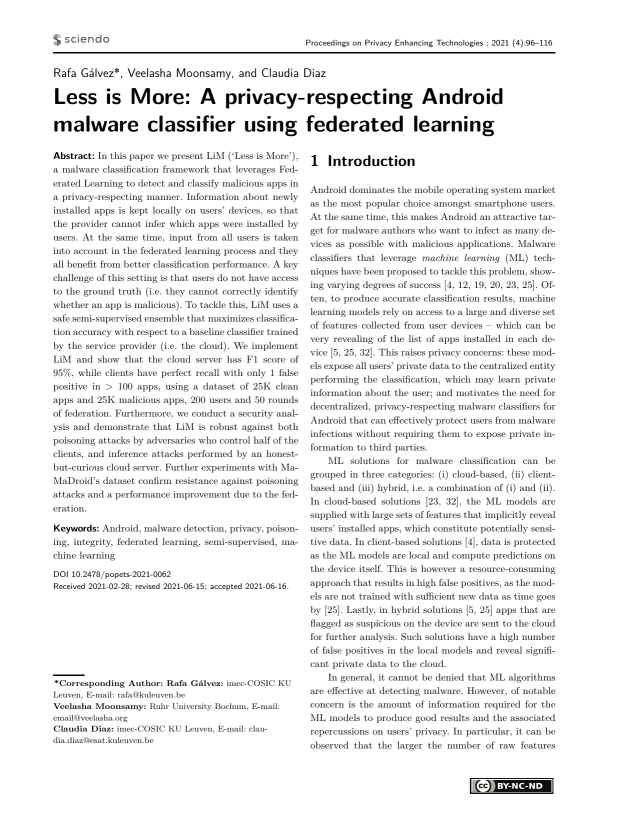Less is More: A privacy-respecting Android malware classifier using federated learning
Authors: Rafa Gálvez (imec-COSIC KU Leuven), Veelasha Moonsamy (Ruhr University Bochum), Claudia Diaz (imec-COSIC KU Leuven)
Volume: 2021
Issue: 4
Pages: 96–116
DOI: https://doi.org/10.2478/popets-2021-0062
Abstract: In this paper we present LiM (‘Less is More’), a malware classification framework that leverages Federated Learning to detect and classify malicious apps in a privacy-respecting manner. Information about newly installed apps is kept locally on users’ devices, so that the provider cannot infer which apps were installed by users. At the same time, input from all users is taken into account in the federated learning process and they all benefit from better classification performance. A key challenge of this setting is that users do not have access to the ground truth (i.e. they cannot correctly identify whether an app is malicious). To tackle this, LiM uses a safe semi-supervised ensemble that maximizes classification accuracy with respect to a baseline classifier trained by the service provider (i.e. the cloud). We implement LiM and show that the cloud server has F1 score of 95%, while clients have perfect recall with only 1 false positive in > 100 apps, using a dataset of 25K clean apps and 25K malicious apps, 200 users and 50 rounds of federation. Furthermore, we conduct a security analysis and demonstrate that LiM is robust against both poisoning attacks by adversaries who control half of the clients, and inference attacks performed by an honestbut-curious cloud server. Further experiments with MaMaDroid’s dataset confirm resistance against poisoning attacks and a performance improvement due to the federation.
Keywords: Android, malware detection, privacy, poisoning, integrity, federated learning, semi-supervised, machine learning
Copyright in PoPETs articles are held by their authors. This article is published under a Creative Commons Attribution-NonCommercial-NoDerivs 3.0 license.

